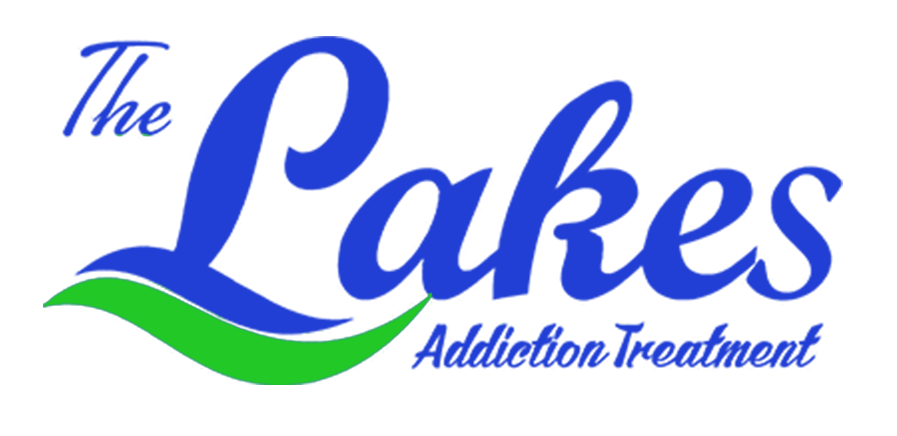Do you have a family member or a friend who is battling substance use? If so, you probably want to find out how to help a loved one with addiction, whether they are already in a treatment program for alcohol or drug addiction or haven’t made that commitment just yet.
Even though the most important aspect of recovering from addiction comes down to the addict seeking out help, having a support system is also crucial. Without a support system in place, those battling addiction will have a higher risk of relapsing. That is why it is essential that friends and family members band together to support them and actively help them in the recovery process.
In this article, we discuss how to help a loved one with addiction, plus what your role should be as part of their support system.
Understanding What Causes Addiction
Before you try to provide support and learn how to help a loved one with addiction, you need to have a full understanding of what addiction is. The majority of people who have never struggled with substance use have some misconceptions about what this entails. There are also many harmful stigmas and stereotypes that you may need to let go of so that you can approach your loved one with empathy.
The first thing to understand is that there are many things that can lead to a need for drug detox. They could have started abusing substances to numb emotional pain, because of peer influence, due to curiosity, or they may have become addicted after medical intervention, such as surgery. Even if there is one major thing that led to the addiction, continual substance abuse is often due to multiple factors.
Addiction also significantly impacts the brain, altering motivation and enjoyment, which can make the recovery process challenging as the brain adjusts to the absence of substances.
Some people are also more likely to experience addictive behaviors due to things such as:
- A family history of addiction
- Past neglect or abuse as a child
- Traumatic experiences or PTSD
- Mental health disorders, such as depression or anxiety
Because there are many things that can lead to addiction, this is a very complex issue that is completely different depending on each individual situation.
The Impact of Active Addiction
Active addiction can have a devastating impact on individuals, their children, and their families.
For starters, substance use disorders often lead to destructive behavior, causing significant harm not only to the individual but also to their loved ones. Family members may experience a range of intense emotions, including anger, fear, and helplessness, as they struggle to cope with the situation. Financial issues are another common consequence of active addiction. The high cost of substance abuse can lead to debt and even bankruptcy, further straining family relationships.
Additionally, substance abuse can affect anyone, regardless of age, background, or socioeconomic status, making it a widespread concern. This is why seeking help and support is crucial for people facing an overwhelming or seemingly insurmountable addiction.
The Family’s Role in Addiction
Family members often play a significant role in either enabling or supporting a loved one’s addiction, often unintentionally. The dynamics within a family can be profoundly affected by addiction, leading to destructive behavior and conflict. Other family members may feel overwhelmed and helpless, unsure of how to cope with the situation.
That said, family members play a crucial role in motivating their loved one to seek treatment and pursue a sober lifestyle — especially education and awareness about substance use disorders. This allows families to help loved ones overcome addiction and chase after a successful recovery.
Tips on How to Help a Loved One with Addiction
Now that you understand the various things that can lead to addiction, how can you help a loved one with addiction by being part of their support system? Simply wanting to support your loved one in their recovery journey is already a step in the right direction. However, if you have never experienced addiction yourself, you may not know how to help them.
Family members often seek to regain a sense of control over the chaotic situations caused by a loved one’s addiction, but it’s important to focus on controlling their own actions and responses to create a healthier environment.
Here are some of the top tips on how to help a loved one with addiction in a way that is empathetic and judgment-free.
Motivate Change
Motivating a loved one to seek treatment for their addiction can be a challenging but crucial step in their recovery journey. It’s essential to approach the situation with empathy and understanding, rather than anger or frustration.
For example, you might point them toward an effective treatment program that addresses the individual’s specific needs and circumstances. Medication and therapy can also be helpful in managing withdrawal symptoms and cravings. Plus, a supportive environment such as drug rehab support can help them stay on track with recovery (think support groups and counseling).
Be a Positive Example
One of the best ways to support a friend or family member who is battling an addiction is by being an example. Show them through your own behavior and lifestyle that a life of sobriety is achievable and rewarding. You may even want to go as far as avoiding substances yourself as a way of showing your support.
Being a positive example also includes helping them find ways of replacing old, unhealthy habits with healthy new ones. For instance, you could help them find sober pastimes, such as exercise, hobbies, etc.
Offer Your Support
Even though you may be fully involved in supporting your loved one on their addiction recovery journey, they may not know this. Addiction is an uncomfortable topic for many people, and you may find yourself becoming a silent supporter. Although any type of support is helpful, you need to let your loved one know that you support them and want to help them.
Take the first step and let them know that you are there to help if they ever need anyone. This will automatically open the door for them to talk to you more openly about their addiction and the struggles they may be having. By doing this, you can help hold them accountable and provide them with the encouragement they need when they are struggling with triggers.
Regular check-ins with a sponsor or counselor can also help individuals stay accountable and address any challenges they may be facing. Celebrating milestones and successes along the way can also help motivate individuals to continue their recovery journey.
Don’t forget to focus on support groups, including 12-step groups like Alcoholics Anonymous and Narcotics Anonymous. This can provide a sense of community and guidance for individuals in recovery.
Take an Active Part in Their Treatment
One of the best ways to really support a loved one who is struggling with an addiction is to actively help them. Although providing emotional support is beneficial, many treatment programs will specifically request that friends and family take an active interest in their loved one’s treatment.
Understanding the various treatment options available can help you better support your loved one and ensure they receive the care that best suits their needs.
When you attend your loved one’s meetings and appointments with them, you’ll have a more thorough understanding of their recovery journey and how you could help. This will help you to be more empathetic and patient and you will be actively showing them that you are committed to helping them reach their goals.
Sobriety can be a lonely process, and the simple act of physically showing up for your loved one will make a huge difference.
Avoid Enabling
Something you need to remember when supporting a loved one in addiction recovery is to avoid any enabling behaviors or habits. Unfortunately, enabling is very common when it comes to friends and family members of addicts. You may be enabling them without even realizing it. Addressing enabling behaviors is crucial, as they can contribute to ongoing drug abuse and hinder the recovery process.
Here are some examples of enabling behaviors that could be hindering your loved one’s recovery success:
- Lying or making excuses for bad behavior
- Taking on responsibilities that they should be handling themselves
- Providing financial support without requiring any personal responsibility
- Rescuing them from the consequences of their own actions
- Attempting to ignore or downplay the severity of their addiction
You also need to keep an eye out for any unhealthy emotions you may be experiencing when you are supporting an addicted loved one. Unhealthy emotions include feeling guilty for their behavior, feeling as though you are responsible for them, or neglecting your own well-being or safety for their sake.
Help Your Loved One on Their Recovery Journey With The Lakes Treatment Center
Even if you are fully committed to helping your loved one with addiction, it can be difficult or even painful to know where to begin, as addiction impacts the lives of both the individual and their family. Discussing a loved one’s addiction can be uncomfortable, and you may not know how to provide the type of help they need. But by using these tips on how to help a loved one with addiction, you could provide them with the support and encouragement they need for long-term recovery.
Do you want to help your loved one get the addiction recovery treatment they need for long-term success? Contact us today at The Lakes Treatment Center for more recovery resources for friends and family members.










